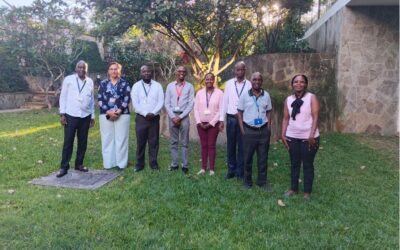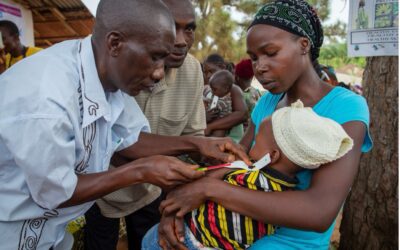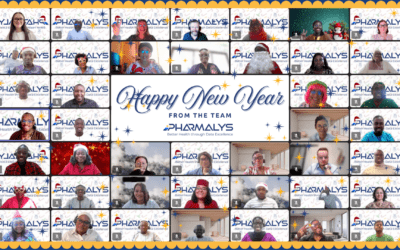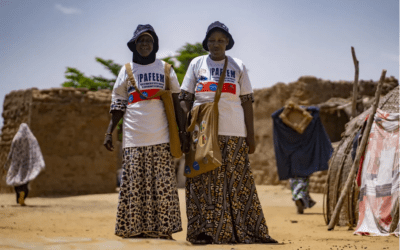Pharmalys was pleased to participate in TCIS Africa 2025, an important gathering of clinical research professionals from across the continent. The event underscored the progress being made in Africa’s research landscape, while also highlighting the essential work still ahead.
Pharmalys took part in two panel discussions:
- Our CEO, Marieme Ba, contributed to an insightful panel on The Future of Clinical Research in Africa, where the discussion centred on the growing potential of artificial intelligence (AI). The panel explored how AI can revolutionise the research process, from protocol design to trial efficiency, while also confronting the challenges of infrastructure, implementation, and regulatory readiness across the continent.
- Assane Ndiaye, Clinical Research Training & Development Team Lead, took centre stage as moderator of the panel Capacity Building in Clinical Research – Training Africa’s Next Generation of Research Professionals. The session unpacked actionable strategies to strengthen Africa’s clinical research workforce and ensure long-term sustainability through training, mentorship, and infrastructure development.
This article focuses on Assane’s insights shared during his panel session.
In his opening remarks, Assane set the tone by emphasising that capacity building is no longer a secondary concern but a central component of achieving equitable progress in global health. “As we strive to improve healthcare outcomes globally, it’s clear that the ability to design, implement, and analyse high-quality clinical studies must extend beyond a handful of institutions across countries,” he stated.
Key Themes and Contributions
During the discussion, Assane and the panel addressed several pressing questions around building and retaining clinical research talent in Africa:
- Developing Sustainable Training Programmes and Preventing ‘Brain Drain’
Assane pointed to key issues such as the lack of job-ready training, limited career paths, and poor working conditions as drivers of ‘brain drain’. He highlighted the importance of tailored training programmes like Pharmalys Academy of Clinical research Excellence (PACE), continuous professional development, competitive salaries, and partnerships with universities. Digital learning platforms, joint programmes and exchange opportunities were also noted as key solutions to nurture and retain skilled researchers.
- Role of Stakeholders in Supporting Clinical Research Infrastructure in Africa
Assane called on governments to implement favourable policies that strengthen regulatory frameworks such as streamlining approval processes and harmonising regional regulations to facilitate multi-country studies, as well as promote investment in clinical research, and on the private sector to integrate capacity-building elements into their projects and support job-ready training initiatives. He also emphasised the role of international partners in offering grants, technical support, and enabling global knowledge exchange.
- Leveraging Digital Tools and E-Learning
Assane acknowledged the potential of digital platforms to expand access to high-quality training across diverse regions. Benefits may include accessibility, flexibility, cost-effectiveness, and improved peer learning through forums and webinars. He advocated for digital inclusion as a path to empowering healthcare workers and improving clinical trial standards continent-wide.
- Strengthening Ethical Oversight and Community Trust
Building public trust, he noted, requires transparent communication using culturally appropriate materials and methods to explain clinical trials. Reinforcing the capacity of ethics committees and engaging community leaders, healers, and advocacy groups were highlighted as essential strategies to ensure ethical trial conduct and community buy-in.
- Creating Career Pathways for Researchers
To ensure long-term growth, Assane advocated for clear career progression frameworks, mentorship programmes including internships, apprenticeships, and hands-on training, as well as collaborations between academia and industry. Recognising and rewarding outstanding contributions, along with leadership training, were identified as key to preparing Africa’s next generation of clinical research leaders.
Pharmalys remains committed to championing African expertise, investing in training, and creating collaborative ecosystems that support clinical research excellence. Events like TCIS Africa reaffirm the importance of ongoing dialogue and shared action toward a more inclusive and capable research landscape across the continent.
Learn more about training efforts and initiatives at Pharmalys here.











